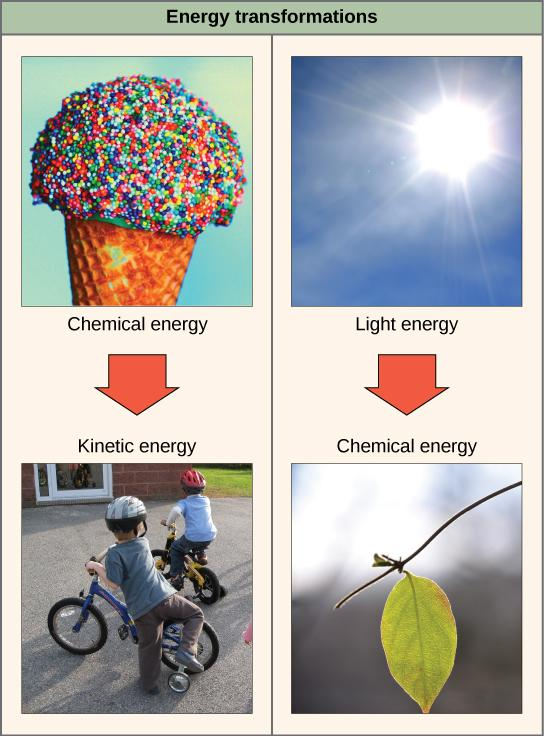
The law of conservation of energy implies that the:
A) Total mechanical energy is conserved
B) Total kinetic energy is conserved
C) Total potential energy
D) Sum of all kinds of energies is conserved
Answer
233.1k+ views
Hint: The energy is the ability of the body to do some useful work. It is present in the universe as many forms into thermal energy, potential energy, kinetic energy, electrical energy, nuclear energy and mechanical energy. It has the ability to transfer from one body to another.
Complete step by step solution:
The law of conservation of energy states that the total energy always remains constant for an isolated system. The energy is neither created nor destroyed but it can change from one form of energy into the other. These energies can be converted into one another, when the external force is applied and the work is done. There is no new energy created or it is deleted from the total energy.

Hence the sum of the total of all the energy in the system always remains the same. When we consider the total mechanical energy, there will be both the potential energy and the kinetic energy. The potential energy at first before motion, converts into the kinetic energy after movement. Hence the total mechanical energy is the sum of the both potential energy and the kinetic energy.
Thus the option (D) is correct.
Note: Let us consider the example of the tube light. When the tube light glows, the electrical energy from the power supply is converted into the light energy and some of the heat energy as the loss. But the total electrical energy is equal to the sum of the heat and light energy produced.
Complete step by step solution:
The law of conservation of energy states that the total energy always remains constant for an isolated system. The energy is neither created nor destroyed but it can change from one form of energy into the other. These energies can be converted into one another, when the external force is applied and the work is done. There is no new energy created or it is deleted from the total energy.

Hence the sum of the total of all the energy in the system always remains the same. When we consider the total mechanical energy, there will be both the potential energy and the kinetic energy. The potential energy at first before motion, converts into the kinetic energy after movement. Hence the total mechanical energy is the sum of the both potential energy and the kinetic energy.
Thus the option (D) is correct.
Note: Let us consider the example of the tube light. When the tube light glows, the electrical energy from the power supply is converted into the light energy and some of the heat energy as the loss. But the total electrical energy is equal to the sum of the heat and light energy produced.
Recently Updated Pages
JEE Main 2023 April 6 Shift 1 Question Paper with Answer Key

JEE Main 2023 April 6 Shift 2 Question Paper with Answer Key

JEE Main 2023 (January 31 Evening Shift) Question Paper with Solutions [PDF]

JEE Main 2023 January 30 Shift 2 Question Paper with Answer Key

JEE Main 2023 January 25 Shift 1 Question Paper with Answer Key

JEE Main 2023 January 24 Shift 2 Question Paper with Answer Key

Trending doubts
JEE Main 2026: Session 2 Registration Open, City Intimation Slip, Exam Dates, Syllabus & Eligibility

JEE Main 2026 Application Login: Direct Link, Registration, Form Fill, and Steps

Understanding the Angle of Deviation in a Prism

Hybridisation in Chemistry – Concept, Types & Applications

How to Convert a Galvanometer into an Ammeter or Voltmeter

Understanding Uniform Acceleration in Physics

Other Pages
JEE Advanced Marks vs Ranks 2025: Understanding Category-wise Qualifying Marks and Previous Year Cut-offs

Laws of Motion Class 11 Physics Chapter 4 CBSE Notes - 2025-26

Waves Class 11 Physics Chapter 14 CBSE Notes - 2025-26

Mechanical Properties of Fluids Class 11 Physics Chapter 9 CBSE Notes - 2025-26

Thermodynamics Class 11 Physics Chapter 11 CBSE Notes - 2025-26

Units And Measurements Class 11 Physics Chapter 1 CBSE Notes - 2025-26




